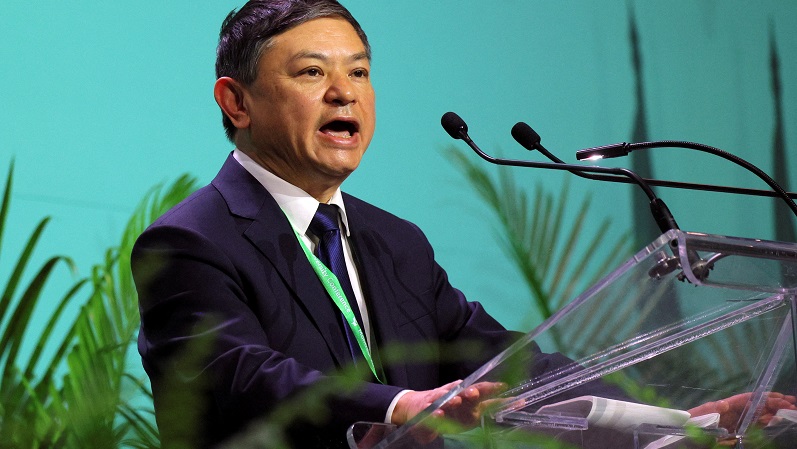The Chinese presidency gavelled through a biodiversity pact in Montreal, overriding the funding concerns of some African delegates
A United Nations summit to strike a deal to protect nature was abruptly adjourned on Monday after the Chinese presidency of the meeting appeared to overrule an objection from the Democratic Republic of Congo.
Chinese minister of ecology and environment Huang Runqiu, who is leading the meeting of the UN-backed Cop15 biodiversity conference, brought down the official gavel and declared a proposed deal passed, minutes after the Congolese representative expressed their objection.
The Kunming-Montreal Global Biodiversity Framework, reflecting the joint leadership of China and Canada, is the culmination of four years of work toward creating an agreement to guide global conservation efforts through 2030.
The countries attending the conference had been privately negotiating a text proposed on Sunday and talks addressing the finer points of the deal dragged on until Monday morning.
As the members returned to the public hall, Huang began presenting the outcome of the meeting. Then, a representative of the delegation from Congo objected to the text, raising concerns about developed nations’ responsibility to fund conservation in developing countries.
“The parties which are developed nations should provide resources to parties which are developing,” the Congolese representative said through a translator.
However, the Mexican delegation said they supported the presidency and the prepared text.
Huang acknowledged the Mexican remarks and then brought down the gavel declaring the deal adopted, drawing outraged comments from other African delegations.
A representative from Cameroon said via translator: “What we saw was a force of hand.”
The representative from Uganda declared that they did not accept the spirit and the manner at which the gavel fell and requested to put on record it did not support the procedure, invoking fraud.
Finance agreement
The agreement, based on the last two weeks of talks, sets a crucial financial target of $200 billion per year for conservation initiatives, though it demands less from wealthy countries than some developing states had wanted.
It recommends allocating $200 billion per year from all sources, including the public and private sectors, for conservation initiat
Read More

